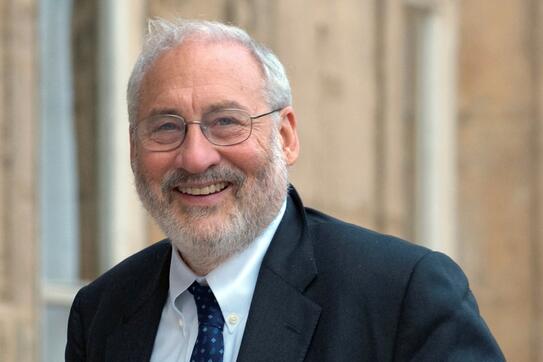The perils of a Trump-Musk economy

Joseph E. Stiglitz
What you need to know:
- Some 23 American Nobel laureate economists endorsing Harris
As America’s crucial presidential election approaches, the campaign has reached a fever pitch, with Donald Trump and his cronies issuing radical promises of what they would do with power. But such promises, for example regarding fiscal policy, inevitably will be broken.
After all, it is mathematically impossible to cut taxes for corporations and billionaires, sustain basic programmes like defence and social security, and lower the deficit simultaneously.
Some of the Trump campaign’s more absurd promises come from Elon Musk, who claims to know how to cut $2 trillion from the federal budget. This is quite rich coming from someone whose companies depend so much on government contracts and bailouts. Musk’s claims betray a startling ignorance of both economics and politics.
His proposals amount to a cut of around one-third of all government expenditures – eight times more than what the government’s internal watchdog estimates to constitute waste or fraud. Among other things, the US would have to cut all “discretionary” spending, including on defence, health, education, and the Departments of Treasury and Commerce, as well as slashing social security, medicare, and other well-established, overwhelmingly popular programmes. Such savage cuts imply that Trump would try to persuade Congress to make major changes to these programmes.
But don’t hold your breath. Trump already had four years to dismantle the “administrative state” when he was president, and he didn’t deliver. Now he is making populist promises that would add to the deficit – more than $7.5 trillion in the coming decade.
Such wrenching cuts would have devastating effects on the US economy and society. Slash-and-burn policies inevitably fail. Just as US Secretary of the Treasury Andrew Mellon’s belt-tightening strategy under Herbert Hoover contributed to the Great Depression, austerity policies in the United Kingdom under 14 years of Conservative government have led to a decade and a half of stagnation.
The contrast between Trump and Kamala Harris’s economic programmes could not be starker. Harris’s agenda would lower the cost of living – building on the Inflation Reduction Act’s (IRA) provisions to reduce the costs of drugs and energy – and make housing more affordable, whereas Trump’s tariffs (a tax on imported goods) would make everything more expensive for Americans, especially middle- and lower-income households. In virtually every area where the country is facing a challenge, Trump’s policies would make matters worse.
Even before the pandemic, US life expectancy – already the lowest among advanced economies – was declining under Trump. By aiming to repeal the Affordable Care Act and the IRA provision that reduces prescription drug prices, Trump would make the situation even worse.Equally, America tops the list of advanced economies in terms of inequality, and Trump’s tax cuts for the rich would widen the gap further. Harris’s policies, by contrast, would aim directly at improving middle-class living standards.In addition to health and inequality crises, climate change is costing Americans dearly in lives and property damage.
Yet Trump has been cosying up to fossil-fuel magnates for campaign contributions, promising to cut regulations on pollution in exchange. These are among the many reasons that 23 American Nobel laureate economists recently signed an open letter endorsing Harris. It is difficult to get two economists to agree on much of anything, but we concluded that “overall, Harris’s economic agenda will improve our nation’s health, investment, sustainability, resilience, employment opportunities, and fairness and be vastly superior to the counterproductive economic agenda of Donald Trump”.
Pocketbook issues are playing an important role in this election, and we Nobel economists concluded that, without question, “Kamala Harris would be a far better steward of our economy”.While America’s economic strength rests on the foundations of science and technology, Trump has repeatedly proposed massive cuts in federal research spending, which would be devastating for advances in basic science and have knock-on effects in many key economic sectors.
When he was in office, even Republicans understood the recklessness of his proposals in this area and voted them down. But now the party’s self-abasing servility to him is total.--Project Syndicate
The author, Joseph E. Stiglitz is a Nobel laureate in
Economics



